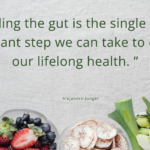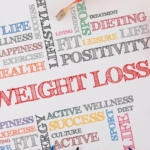Endometriosis: When Period Pain Isn’t Just Period Pain
Unfortunately, period pain has become such a common thing, that it is considered normal. Period pain is not normal. It’s a sign that something is out of balance. Severe period pain, that causes you to put your life on hold every month, could be caused by endometriosis and needs investigating. It’s estimated that 830,000 women in Australia have endometriosis and the cost to the individual and the health system is significant.
What Is Endometriosis?
Endometriosis is an inflammatory disease where the endometrium (the inner tissue layer of the uterus which thickens and then sheds during a menstrual period) is found outside of the uterus.
This endometrial tissue can grow on other organs in the pelvis such as on the ovaries and fallopian tubes. The endometrial-like tissue behaves as it would during a menstrual cycle and can thicken, break down and bleed into the pelvic cavity with no way to escape. This causes inflammation, pain (sometimes severe), and the formation of scar tissue.
Endometriosis Can Cause:
- Painful periods and pelvic pain
- Pain with intercourse
- Pain with bowel movements and urination
- Bloating, Diarrhoea, Constipation especially during periods.
- Excessive period bleeding
- Infertility
- Fatigue

Who’s At Risk
Women who:
- Have never had children
- Had their first periods at a young age
- Have late menopause
- Have short cycles of less than 22 days
- Have periods bleeds that last longer than 7 days
- Have high oestrogen levels
- Have a low BMI
- Have a family history of endometriosis
- Have any condition affecting normal menstrual flow out of the body.
How Is Endometriosis Treated?
Medical treatment of endometriosis includes:
- Symptomatic relief with anti-inflammatory medications.
- The use of the oral contraceptive pill to block oestrogen excretion by the ovaries.
- An IUD (intrauterine device) to suppress endometrial lesions without shutting down ovulation or causing oestrogen deficiency.
- Surgical intervention.
Unfortunately, surgical intervention is not always a long term solution, with 50% of cases of endometriosis recurring after 1 year.
With hormonal oral contraceptives, there may be side effects, and for some women, the risks are not suitable. Side effects can include an increased risk of blood clots, acne, weight gain, hot flushes, fatigue and mood disturbances.
The good news is that for mild to moderate cases of endometriosis and period pain, there is much that can be done naturally to relieve symptoms, reduce the progression of endometriosis, regulate hormones and the immune system, reduce inflammation, support mood and manage the impacts on quality of life.
Sometimes natural treatments are not enough on their own, but can also be extremely valuable when used as a supportive treatment after surgery.
Diet Hacks:
Avoid dairy and gluten. These foods are top of the list when it comes to potential triggers for inflammation and disruption of the immune system. You can read more about the inflammatory aspects of gluten and dairy here. There are mixed reports on the scientific basis for this recommendation, but what I and many practitioners in the health industry have observed is that the avoidance of these foods offers benefit. (read more on gluten and dairy here)
Herbal Medicine:
Black cohosh, Cramp bark, Chamomile, Corydalis, Ginger, Turmeric and Wild Yam may be useful to relieve pain, decrease inflammation and regulate hormones.
Feverfew, Andrographis and Turmeric are showing promise as treatments that may assist in reducing the endometrial tissue volume and scar tissue. (nerd out with this research paper)
N-Acetyl Cysteine (NAC):
Promising evidence for the benefits of this nutrient in the treatment of endometriosis growing. Benefits include pain relief and the reduction of endometrial tissue and ovarian cysts, as well as the preservation of fertility.
“WITH REFERENCE TO THE UNMET MEDICAL NEEDS OF ENDOMETRIOSIS, OUR RESULTS CLEARLY SHOW THAT NAC EFFECTIVELY TREATS OVARIAN ENDOMETRIOSIS. IN TERMS OF REDUCTION IN CYSTS SIZE, OUR DATA ARE EVEN MORE FAVORABLE THAN THOSE GRANTED BY THE CURRENTLY ADOPTED HORMONAL TREATMENTS, WITH THE FURTHER ADVANTAGES OF FERTILITY PRESERVATION AND OF THE VIRTUAL ABSENCE OF UNDESIRED SIDE EFFECTS.”
EVID BASED COMPLEMENT ALTERNAT MED. 2013; 2013: 240702.
PUBLISHED ONLINE 2013 MAY 7. DOI: 10.1155/2013/240702
Zinc:
Zinc is an important nutrient involved in many biochemical processes within the body. Zinc’s role in regulating the immune system, tissue repair, and hormone regulation is of particular importance for endometriosis and post-surgical recovery.
Not only can endometriosis cause pain and suffering, but it can damage other organs and tissues, contribute to mental health issues, damage fertility and cost women their quality of life.
The goal of Naturopathic Medicine is an individualised approach to reduce inflammation and pelvic congestion, modulate hormones, reduce pain, regulate the immune system, and address excess menstrual loss and it’s associated impacts. I believe it’s important to offer support that enhances and works with medical interventions and treatments. At the end of the day, the ultimate goal is to help you cope better with your menstrual cycle each month, so you can lead a happy, healthy and productive life as a woman!





